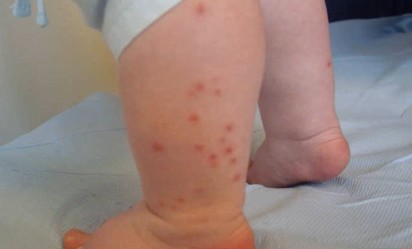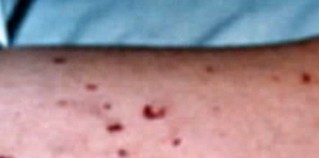Meningitis is a condition characterized by inflammation of the meninges, i.e. the membranes that surround the spinal cord and the brain.
Meningitis commences with a marked swelling which is later followed by the characteristic symptoms of this disease such as fever, headache, and a stiff neck.
A majority of meningitis cases in America are caused by viral infections. However, it can also be caused by fungal and bacterial infections. Depending on the causative infections, meningitis may disappear on its own in about two weeks, or it may become deadly and require emergency antibiotic treatment.
It is important for all patients to seek immediate medical care if they suspect the presence of meningitis. Early treatment, especially of bacterial meningitis, can prevent the onset of life-threatening complications.
Symptoms of meningitis
It is easy to confuse the symptoms of meningitis for flu. The signs and symptoms of meningitis occur over many hours, or over 1 to 2 days.
Patients older than two years may elicit the below listed symptoms of meningitis:
- Intense headache that is very unique and different from normal ones
- Sudden onset of high fever
- A stiff neck
- Problems in concentrating; confusion
- Convulsions
- Increased sensitivity to light
- Problems in waking up; sleepiness
- Decreased interest in eating or drinking
- Vomiting along with headache and nausea
- A skin rash; meningitis rash
Bacterial meningitis rash
It initially appears as a small group of tiny pinpricks, which later deteriorate into regions with skin damage. When a purple colored meningitis rash is pressed, it does not turn white. It is important to immediately visit a doctor as bacterial meningitis rash is a sign of blood poisoning or septicemia.
Viral meningitis rash
It may be raised in some areas while flat in other regions. Viral meningitis rash is reddish in color. In babies, it can affect just the hands and legs, or the entire body.
Newborns do not experience the classic meningitis symptoms like a stiff neck and headache. Instead they elicit the below listed symptoms of meningitis:
- High fever
- Irritability; increased sleepiness
- Unabated crying
- Lethargy, sluggishness, or inactivity
- The fontanel may exhibit a bulge
- Poor feeding
- Difficulty in comforting them; affected babies may cry a lot more when picked up.
- The neck and body may experience stiffness
Causes of meningitis
Meningitis is mostly caused by viral infections; sometimes by bacterial infections; and rarely by fungal infections. Bacterial meningitis can prove to be fatal.
- Viral meningitis: Most cases of meningitis are caused by viral infections. Viral meningitis is generally mild and typically disappears on its own without treatment. Most instances of viral meningitis in the US are caused by enteroviruses which are often prevalent in early fall and late summer. Viral meningitis can also be caused by HIV, herpes simplex virus, West Nile virus, mumps, and other viruses.
- Bacterial meningitis: It is caused due to entry of bacteria into the bloodstream from where they spread to the spinal cord and brain. It can also occur due to direct attack of the meninges by bacteria during a skull fracture, sinus infection, or in rare cases, post-surgery. Some common strains of bacteria that may cause meningitis include streptococcus pneumoniae, haemophilus influenzae, neisseria meningitides, and listeria monocytogenes.
- Chronic meningitis: It is caused due to invasion of the fluids and membranes surrounding the brain by slow-growing pathogens. As opposed to acute meningitis which has a sudden onset, chronic meningitis occurs slowly over 2 weeks or more. It however causes the same signs and symptoms like fever, headache, etc.
- Fungal meningitis:It is quite rare, non-contagious, and results in chronic meningitis. It may sometimes imitate acute bacterial meningitis. The most common type of fungal meningitis is cryptococcal meningitis which typically affects people with AIDS and impaired immune systems. It can prove to be fatal if not treated with antifungals.
- Other causes of meningitis: Meningitis can also arise due to non-infectious causes like medication allergies, chemical reactions, inflammatory conditions like sarcoidosis, and certain types of cancer.
Treatment of meningitis
Doctors arrive at a treatment plan only after verifying the type of meningitis affecting the patient.
- Viral meningitis usually gets better on its own. Patients need to drink lots of fluids, take bed rest, and use OTC pain killers to alleviate body aches and fever. Meningitis caused by the herpes virus is treated with an antiviral drug.
- Treatment for acute bacterial meningitis involves immediate intravenous administration of antibiotics and sometimes cortisone medicines to decrease the risk of complications like seizures and brain swelling, and also to speed up recovery. Doctors often use a broad-spectrum antibiotic till the type of bacteria causing the infection is ascertained.
- Infected mastoids and sinuses may require draining.
- Some forms of bacterial meningitis can be prevented with vaccinations
- Fungal meningitis is treated with antifungals. However, these drugs can have severe side effects. Hence, their use is deferred till the exact cause is confirmed.
- Cancer associated meningitis requires relevant cancer treatment.
- Non-infectious meningitis caused due to autoimmune disease or an allergic reaction is treated with cortisone drugs. Sometimes, they resolve on their own.
- Chronic meningitis is treated as per the underlying cause, which is usually a fungal infection.
Meningitis Rash (Picture)

